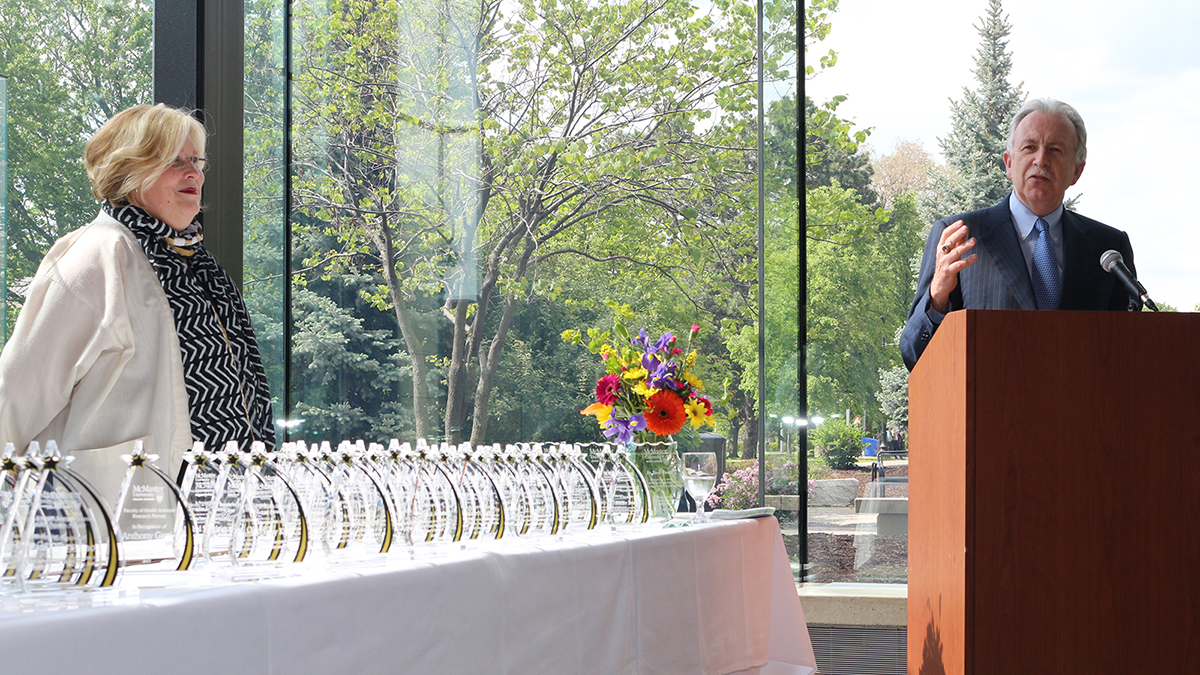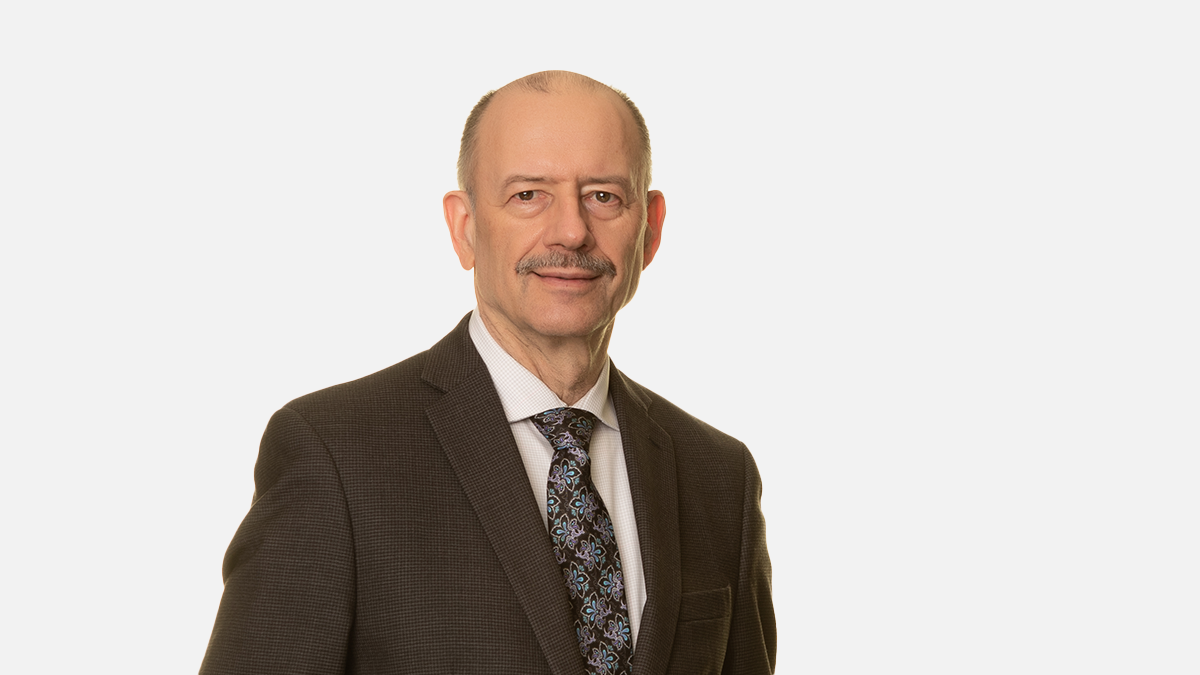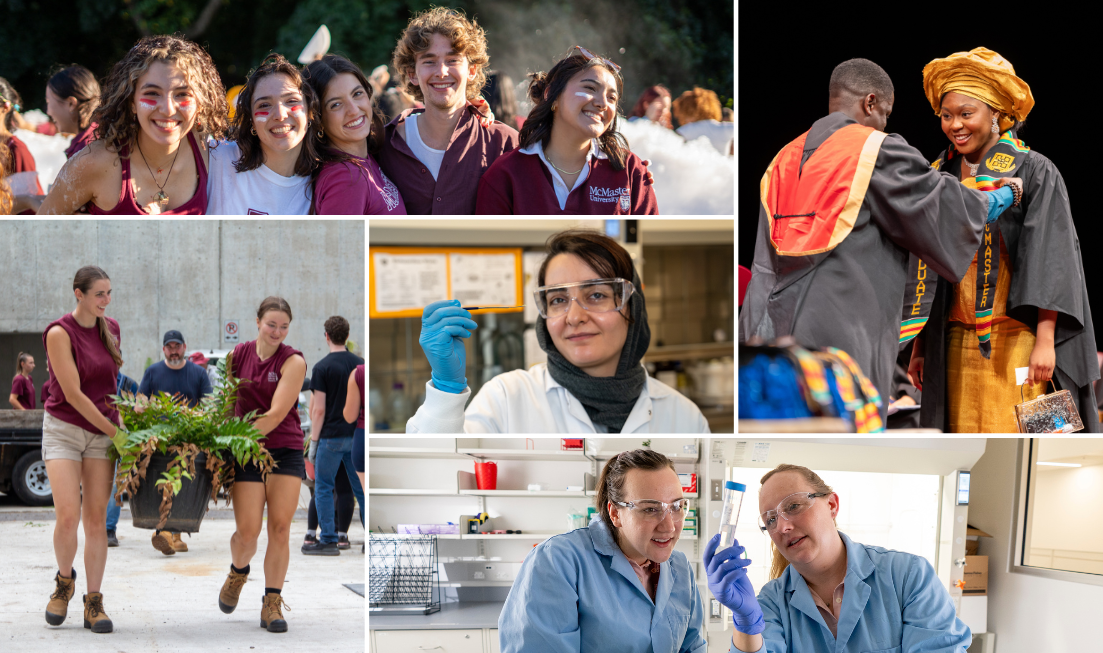Office Hours with Nikhil Pai

Nikhil Pai always knew he wanted to work in pediatrics. What he wasn’t expecting is how much of his work would involve poop.
Pai is a pediatric gastroenterologist and an associate professor with McMaster University’s Department of Pediatrics. He considers himself a clinician-scientist. It’s a position that allows him to ask: How can I advance my research to help patients?
“I ask, are there new treatments or approaches that are out there for our patients?’ There are sometimes options that are available for adults, so why can’t we have these become available for our kids? These are the kinds of gaps that I try to answer in my research,” he says.
One such instance of this focused on fecal transplants. It’s a procedure used to treat bacterial infections like C. difficile. Instead of using only antibiotics to clear out the “bad bacteria,” a fecal transplant can be done to add healthier bacteria back in via the insertion of stool.
“In the process of getting rid of certain pathogens with antibiotics, you often create this space where different pathogens can potentially seize the opportunity to go back instead,” Pai says. “With a fecal transplant, there are no gaps to fill opportunistically. All the empty spots are filled back again with what we believe are healthier bacteria.”
Fecal transplants for the treatment of C. difficile aren’t uncommon for adults, but they’re less common for children. This is partly because of a lack of readily available healthy stool to use for kids who require this treatment.
But thanks to Pai and his team at McMaster Children’s Hospital, Canada now has its first pediatric stool bank. Housed in a -80 C freezer at the hospital, one patient’s bowel movement can create between eight to 10 enema treatments for fecal transplants. Each treatment is approximately 81 per cent effective at eradicating recurrent C. difficile in children. With two treatments, the effectiveness increases past 90 per cent.
“I’m really proud of our pediatric donor stool bank. Now we can potentially offer this treatment to kids from around the country who are struggling with a condition for which we know there’s a treatment, but that they couldn’t always get access to. Now we can make access to care more equitable.”
The road to research
Pai has long seen research as a means to better help the people clinicians serve. His work with fecal transplants was born from this compassionate approach, which continues to drive his research group towards innovative new approaches to care.
“It speaks to the goals that first attracted me to medicine: To be able to provide equitable care for children worldwide. I think that’s why I find this particular work really fascinating. If we can better understand why gut bacteria can be used as treatment, why gut bacteria changes with conditions like Crohn’s disease, ulcerative colitis, depression and anxiety, obesity, it may be the first step to understanding these diseases in a different way than we used. And coming up with new treatments that can be available widely,” he says.
Equitable care is important to Pai. That’s why he likes stool. It’s widely available, and it’s cheap – especially when compared to treatments like biologic therapies that help control disease after its already been established and often come with an annual price tag of more than $50,000.
“The majority of ‘new treatments’ are forbiddingly expensive for a lot of the world. If we can identify treatment options that don’t carry this enormous price tag and can help manage conditions like C. difficile, and in the future, things like inflammatory bowel disease or other conditions — that is powerful.”
Pai admits his research often sends him down rabbit holes looking for innovative ways to approach common health-care challenges. But ultimately Pai remains focused on bettering the lives of his patients.
“I often coach the students in my lab that if they want to pursue the coolest, most cutting edge work and really make it launch, they should consider getting a PhD and going into the biotech sector. If you want to go into medicine, your research plays second fiddle to the needs of your patients. I’m a doctor first; my patients’ stories inform the questions I ask.”
Working with children
Pai is a proud father of two little girls, Mirella and Avni. He finds working with kids inspiring and incredibly fun. He finds his work grounding, and offering a constant reality check for how we see our lives and our place in the world.
“Children are resilient. Their capacity to bounce back and carry on is incredible. There are patients we follow through the intestinal rehabilitation team who have had major segments of their gastrointestinal tracts removed as newborns; now, their intestines have grown back, adapted and they are eating fine. Across pediatric medicine, we have patients who have suffered major trauma to their brain, lungs, kidneys – by and large, children have a remarkable capacity to do well.”
Pai attributes this resilience to how kids often focus on just being in the present. But the sobering realities of their medical situation and the uncertainty of the future often falls on the shoulders of their parents. That’s where being a father really puts things into perspective.
“Even though the children are often ready to go and just focusing on their next step, I feel for the moms and dads,” he says.
Looking towards the future
With the pediatric stool bank now up and running, the team will turn its attention towards developing oral capsules, similar to a probiotic, that can help deliver fecal transplants to the gut in a more tolerable form. He looks to the work of mentors and colleagues like Michael Surette, a McMaster professor in the Department of Medicine and Canada Research Chair in Interdisciplinary Microbiome Research.
“With a capsule we would potentially be able to send this out to children who need this therapy around the country, so they don’t have to travel to McMaster Children’s Hospital for treatment,” Pai says.
His team is supported by research coordinator, Fariha Chowdhury. They are also studying other disorders that could be treated through fecal transplant like small intestinal bacterial overgrowth, and pediatric anorexia nervosa in collaboration with Jennifer Couturier, McMaster associate professor in Psychiatry and Behavioural Neurosciences.
Pai hopes to continue focusing on more actionable ways for his research to make an impact.
“I think impact comes in many different forms. Sometimes it’s about publishing in high-impact journals, sometimes it’s about running trials that give patients access to novel therapies, sometimes it’s about geography – being in the right environment, with the right collaborators, at the right time. There are some unknowns about what that’s going to look like, but I’m excited for the future.”
Faculty & Staff, Office HoursRelated News
News Listing

Faculty of Health Sciences 2024: The year in awards
#Shorts, Faculty & Staff, Feature
December 10, 2024

McMaster professor emeritus named recipient of Canadian Blood Services Lifetime Achievement Award
Faculty & Staff, Leadership
December 5, 2024

